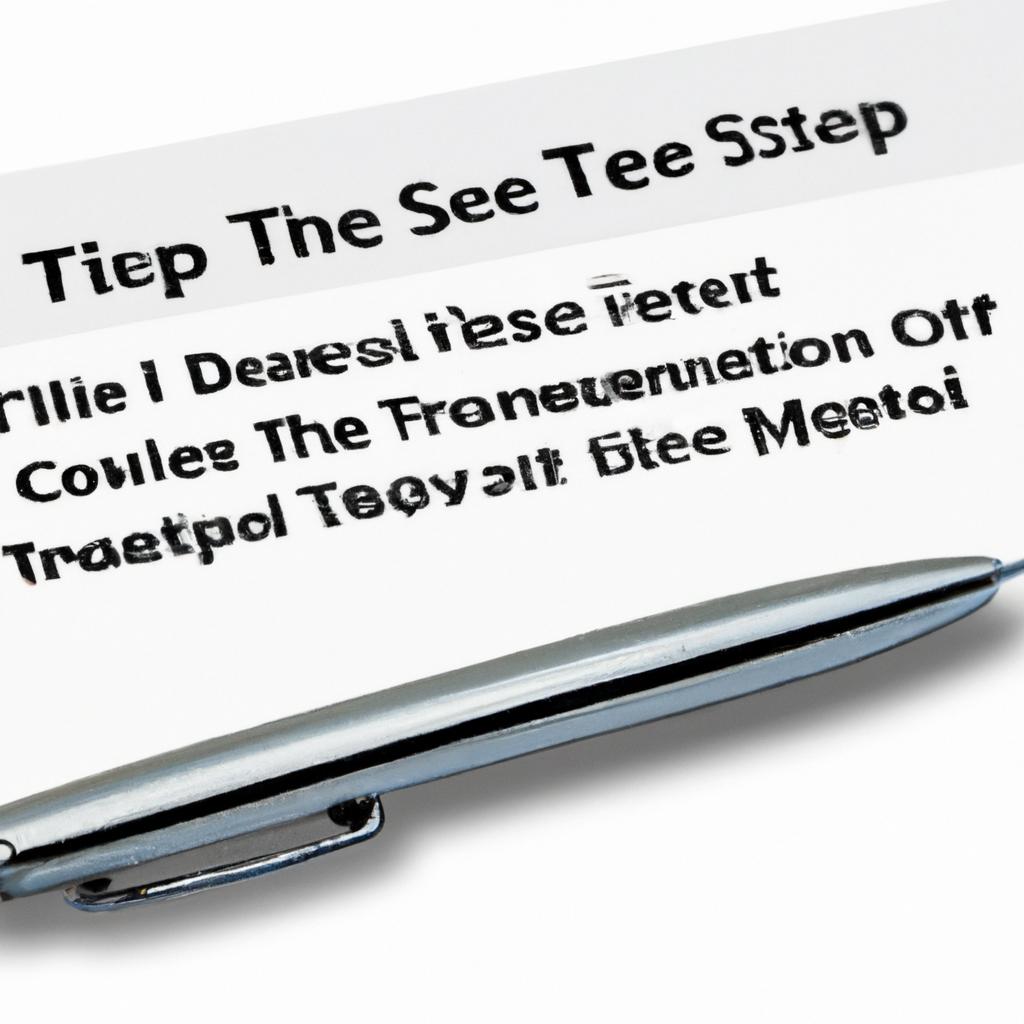In the intricate and often daunting realm of posthumous affairs, the transfer of title for a vehicle after the owner’s passing stands as a critical task requiring meticulous attention to detail. As seasoned practitioners in the fields of estate planning, probate, elder law, Wills, and trusts, the Morgan Legal Group of New York City possesses the expertise necessary to guide individuals through the complexities of navigating this process. Join us as we unravel the nuances of transferring title of a vehicle after death, providing clarity and peace of mind in the midst of challenging circumstances.
Understanding the Process of Transferring Title of a Vehicle After Death
When it comes to transferring the title of a vehicle after the owner’s death, there are several important steps that must be followed to ensure a smooth and legal process. One of the first things that needs to be done is to determine who the new owner of the vehicle will be. This can be specified in the deceased person’s Will or determined by state laws if no Will exists.
Once the new owner has been identified, the next step is to complete the necessary paperwork to transfer the title of the vehicle. This typically involves submitting a copy of the death certificate, the original title of the vehicle, and any other required documentation to the appropriate government agency. It’s important to follow all the necessary steps to avoid any delays or complications in the title transfer process.

Important Considerations When Dealing with Vehicle Title Transfer in Estate Planning
When a loved one passes away, transferring the title of their vehicle is an important step in the estate planning process. It is crucial to ensure that the proper procedures are followed to avoid any complications or delays. Here are some key considerations to keep in mind:
- Probate Process: In most cases, the vehicle will need to go through the probate process before the title can be transferred. This involves the court validating the deceased person’s Will and appointing an executor to handle the distribution of assets.
- Title Transfer Forms: Once the probate process is complete, the executor will need to fill out the necessary title transfer forms. These forms may vary depending on the state where the vehicle is registered, so it is important to check with the Department of Motor Vehicles for specific requirements.

Key Steps to Ensure Smooth Transfer of Vehicle Title Post Demise
To ensure a smooth transfer of vehicle title post demise, it is essential to follow key steps to avoid any delays or complications. One of the first steps is to locate the deceased individual’s vehicle title, which is typically found among their important documents. Once the title is found, the following steps should be taken:
- Obtain the death certificate: Before initiating the transfer process, it is crucial to obtain a copy of the deceased individual’s death certificate. This document will be required to prove the individual’s passing.
- Identify the vehicle’s executor: The individual named as the executor of the deceased person’s estate will have the authority to transfer the vehicle title. If no executor was named, the court may appoint one.
It is important to note that the specific requirements for transferring a vehicle title post demise may vary depending on the state where the process is taking place. However, these key steps provide a general guideline for a smooth transfer process. By following these steps and seeking guidance from legal professionals like Morgan Legal Group in New York City, the transfer of the vehicle title can be efficiently completed, ensuring proper succession of assets.

Expert Recommendations for Efficient Vehicle Title Transfer After the Passing of a Loved One
When it comes to efficiently transferring the title of a vehicle after the passing of a loved one, it is crucial to follow expert recommendations to avoid any potential legal complications. Here are some key steps to ensure a smooth and hassle-free transfer process:
- Gather necessary documents: Begin by collecting all essential documents including the vehicle title, death certificate, will or trust documents, and any relevant paperwork.
- Consult with a legal professional: It is highly recommended to seek guidance from an experienced estate planning attorney who can provide valuable insight and assistance throughout the title transfer process.
Additionally, remember to notify the relevant authorities such as the Department of Motor Vehicles (DMV) about the change in ownership and update the vehicle registration accordingly. By following these expert recommendations and seeking professional advice, you can ensure a seamless transfer of the vehicle title after the loss of a loved one.
Q&A
Q: What happens to a vehicle when its owner passes away?
A: When a vehicle owner passes away, it is necessary to transfer the title of the vehicle to the new owner.
Q: How can the title of a vehicle be transferred after death?
A: The title of a vehicle can be transferred after death through a legal process, such as probate or a transfer on death deed.
Q: What documents are needed to transfer the title of a vehicle after death?
A: Documents needed to transfer the title of a vehicle after death may include a death certificate, vehicle title, and proof of ownership.
Q: Can the title of a vehicle be transferred to a family member after death?
A: Yes, the title of a vehicle can typically be transferred to a family member after death through proper legal channels.
Q: Are there any taxes or fees associated with transferring the title of a vehicle after death?
A: There may be taxes or fees associated with transferring the title of a vehicle after death, depending on the laws and regulations in your area.
Q: How long does it typically take to transfer the title of a vehicle after death?
A: The time it takes to transfer the title of a vehicle after death can vary depending on the complexity of the estate and the legal process involved. It is recommended to consult with a legal professional for specific timelines.
Q: What should I do if I inherit a vehicle after someone’s death?
A: If you inherit a vehicle after someone’s death, it is important to follow the proper legal procedures to transfer the title of the vehicle into your name. This may include submitting the necessary documentation and paying any required fees.
Q: Are there any specific steps I should take to transfer the title of a vehicle after death?
A: Specific steps to transfer the title of a vehicle after death may vary depending on the laws in your area. It is recommended to consult with a legal professional to ensure the process is completed correctly.
The Conclusion
In conclusion, transferring the title of a vehicle after the death of its owner can be a complex process, but with the right guidance and understanding of the necessary steps, it can be a seamless transition. It’s important to carefully follow the legal requirements and documentation to ensure a smooth transfer of ownership. By taking the time to properly handle the transfer of the title, you can honor the legacy of the deceased and ensure that their assets are appropriately passed on. If you have any questions or need assistance with transferring the title of a vehicle after death, don’t hesitate to seek guidance from a legal professional or the relevant authorities. Thank you for reading, and may the process of transferring the title be a straightforward one for you.

